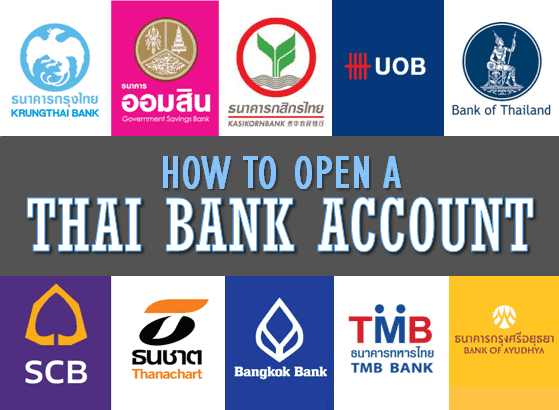Retiring in Thailand has become increasingly popular among foreigners seeking a relaxed lifestyle, sun-soaked beaches, and quality living at a lower cost. For those aged 50 and above, the O-A and O-X retirement visas offer long-stay options in Thailand. While owning property doesn’t automatically qualify you for these visas, buying real estate in Thailand can bolster your case by demonstrating long-term commitment and stability.
This guide explains what the O-A and O-X visas are, how they differ, the requirements (financial, age, insurance), how property ownership fits in, and what you should consider as a property investor.
What are the O-A and O-X Retirement Visas?
The Non-Immigrant O-A Visa is commonly called the “retirement visa” for eligible foreigners aged 50+. It grants a 1-year stay, renewable annually, provided you continue meeting requirements. สถานกงสุลใหญ่ ณ นครลอสแอนเจลิส+2It’s better in Thailand+2
The Non-Immigrant O-X Visa is a longer-term option (initial 5 years + extension up to 10 years total) for ageing retirees from specified countries. Employment is strictly prohibited under this visa. สถานกงสุลใหญ่ ณ นครชิคาโก+2thailand.go.th+2
These visas are part of Thailand’s broader approach to attract long-stay residents and integrate them into the property/retirement lifestyle sector.
Key Eligibility Requirements
Age & Nationality
You must be 50 years of age or older when you apply. สถานกงสุลใหญ่ ณ นครลอสแอนเจลิส+2It’s better in Thailand+2 For the O-X visa, you must also be a national of one of the eligible countries (e.g., USA, UK, Germany, Australia, Japan, etc.). สถานกงสุลใหญ่ ณ นครชิคาโก+1
Financial Requirements
For the O-A visa:
Either a Thai bank deposit of THB 800,000 (around USD 22,000+) in a Thai bank account held for a minimum period. It’s better in Thailand+1
Or proof of monthly income of at least THB 65,000 (approx USD 1,900) from a pension or regular income. It’s better in Thailand+1
Or a combination of savings plus income totalling at least THB 800,000 per year. thailand.themispartner.com+1
For the O-X visa (5-10 year option):
A Thai bank deposit of at least THB 3,000,000 in a Thai commercial bank, or
A deposit of at least THB 1,800,000 + annual income of at least THB 1,200,000 (~USD 30,000) per year. thailand.go.th+2image.mfa.go.th+2
Health Insurance & Medical Requirements
Both visas require you to have a clean criminal record, no certain serious diseases (e.g., leprosy, tuberculosis, elephantiasis, etc.). image.mfa.go.th+1 For O-X: health insurance must cover a minimum of THB 400,000 for inpatient care and THB 40,000 for outpatient (per year) under Thai standards. longstay.tgia.org+1 For O-A: you must hold health insurance covering both in-patient and out-patient care (recent rules emphasise this) if applied from abroad. image.mfa.go.th+2It’s better in Thailand+2
Employment & Residency Conditions
Under both visas, employment in Thailand is not permitted unless a separate work permit is obtained (which is typically not aligned with the retirement visa purpose). สถานกงสุลใหญ่ ณ นครชิคาโก+1 You must also report your address to Thai Immigration at intervals and meet any renewal requirements each year (for O-A) or every 5 years (for O-X).
How Property Ownership Helps – And What It Doesn’t Do
Owning property in Thailand — such as a condominium, villa, or land leasehold/lease structure — can support your retirement visa case in several ways:
Demonstrates that you have a long-term base in Thailand, which may support your stability and credibility with immigration authorities.
Gives you a tangible residence, strengthening your lifestyle argument rather than just being a visitor.
Allows you to align your real-estate purchase strategy (e.g., in Phuket) with your retirement stay goals.
However, it’s important to emphasize: property ownership alone does not automatically qualify you for the O-A or O-X visa. The visa rules are separate and must still be met. Also owning property does not equate to automatic permanent residency or citizenship.
Practical Steps & Property-Linked Checks
Choose your property (condo, villa) ensuring it’s legally sound (titles, foreign ownership limits, etc.).
Ensure you meet the visa financial requirements (e.g., deposit or income) before applying for your retirement visa.
If you plan to use the Thai bank deposit route, open a Thai bank account and deposit the required amount some months in advance (O-A: usually 2+ months; check with bank). It’s better in Thailand
Consider the timing: If you buy property first, you’ll need to show that you have either the deposit or income and potentially proof the purchase/ownership to strengthen your application.
Obtain valid health insurance and a medical certificate, gather police clearance, passport photos, and application forms.
Submit your application via the Thai embassy/consulate in your home country (for O-A/O-X) or via Thai immigration if local conversion is possible.
Once approved, comply with annual address reporting (O-A) or 5-year reporting (O-X) and maintain your deposit/income for renewals.
Things to Watch Out For & Advice for Property Investors
Opening a Thai bank account with large deposits can sometimes raise questions — ensure funds are legally transferred from abroad and documentation is clear.
Property investors often mistakenly think buying real estate automatically gives visa rights — it doesn’t. The visa requirement and property ownership are separate paths that you can combine.
Make sure your investment property is properly titled, registered, and managed — especially if you intend to live in or rent it out.
Be aware of tax/residence implications if you stay long-term in Thailand and especially if you’re earning rental income from your property.
Renewal of the visa requires you still meet the financial thresholds each year. For example, with O-A you must maintain the deposit or income standard. Failure may lead to denial of renewal.
While the O-X is more flexible (10-year stay), it is limited to nationals of certain countries and carries higher financial thresholds.
Final Thoughts
For foreign buyers interested in combining property ownership in Thailand (for example, investing in a condo or villa in Phuket) with long-term residence, the O-A and O-X retirement visas are solid tools. While buying property does not unlock the visa by itself, it enhances your relocation strategy — aligning lifestyle, investment and residence in one plan.
If you’re planning to buy property in Thailand and stay long-term under a retirement visa, here’s what to do next:
Select your ideal property (location, investment vs living).
Check you meet the age, deposit/income and insurance requirements for the visa.
Work with a Thai-licensed property agency and an immigration/visa specialist.
Use your property purchase as part of your long-term commitment story when applying for the visa.
By combining the right property investment with a retirement visa strategy, you can confidently make Thailand (and Phuket) your home for years to come.




